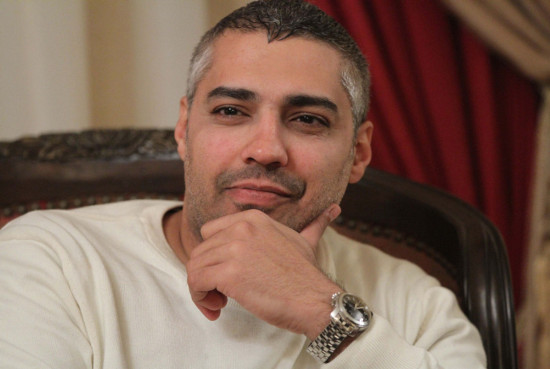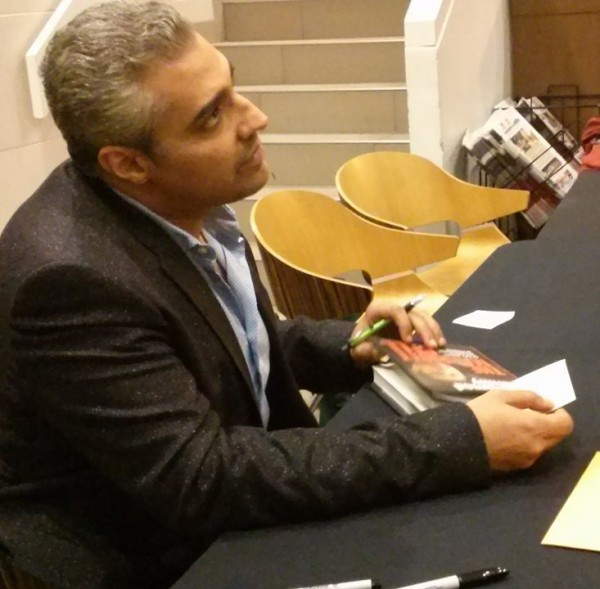Mohamed Fahmy
Photo credit: Sarah Onyango
Fahmy, the one-time Cairo bureau chief for Al-Jazeera English television network, along with two journalist colleagues, Australian Peter Greste and Egyptian Baher Mohamed, was sentenced in late August to three years in prison after he and the others were found guilty of terrorism-related offences.
He’d already spent more than a year in an Egyptian prison. His conviction in August sparked international criticism of the Egyptian government, so much so that President Abdel Fattah al-Sisi pardoned Fahmy, allowing him to return to Canada in late September.
Fahmy, who came to Canada with his family in 1991 and obtained his citizenship in 1994, worked for several years as a journalist in the Middle East, including for the New York Times, the Los Angeles Times and CNN, before joining Al Jazeera. He held dual citizenship as a Canadian and an Egyptian, but says he always used his Canadian passport while working overseas as a journalist.
“Aside from the hefty financial, emotional and physical price me and my family paid in this case, I think it’s a matter of principle for me to get my Egyptian citizenship back,” said Fahmy, who spoke Monday night at Carleton University at an event sponsored by the Canadian Committee for World Press Freedom.

“I didn’t want to give up my Egyptian citizenship but I was advised — some call it coerced — to drop my citizenship because this was the best way to gain my release,” he said. “I got assurances from both the Canadian government and the Egyptian government that this was the best way to go. But then they threw me back in the cage rather than release me in the same way as Peter (Greste).”
In early October, within days of his return to Canada, Fahmy denounced the Conservative government for not doing enough to get him out of prison. During a news conference with NDP Leader Tom Mulcair, Fahmy said he felt former prime minister Stephen Harper had “betrayed” him.
Fahmy reiterated that sentiment in Monday’s interview before his speaking event. He remains bitter about what he sees as Harper’s unwillingness to use the prestige of his office to help get him out of prison. Former Australian prime minister Tony Abbott actively intervened to gain the release of Peter Greste.

“Mr. Harper delegated his responsibilities to the ambassador and his staff. They were amazing, but they didn’t have the clout to pull it off. Of course, I was betrayed. You’re talking about a life-or-death situation.”
Fahmy said he’s working with Amnesty International and his lawyers to draft a proposed charter of rights on how the Canadian government should respond to situations where citizens are imprisoned abroad. He intends to present the Liberal government with the results. The would-be charter emphasizes the need for direct leader-to-leader intervention to put pressure on a foreign government to force a Canadian prisoner’s release
“The core thing that’s important about this is the importance of leader-to-leader intervention as soon as the arrest happens,” Fahmy said.
Since his returned to Canada, Fahmy has filed a $100-million lawsuit against Al Jazeera, saying that the network’s Egyptian affiliate, Al Jazeera Mubasher, was a “thinly veiled mouthpiece” of the Morsi government and a propaganda arm of the Muslim Brotherhood.

Source: Ottawa Citizen (Robert Sibley)


